


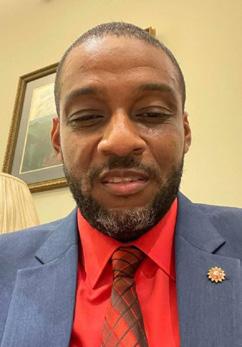
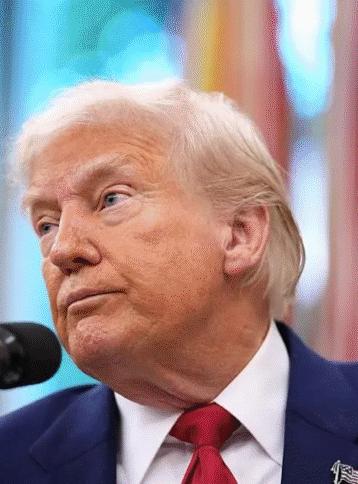
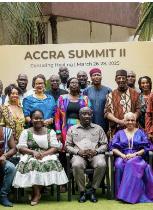






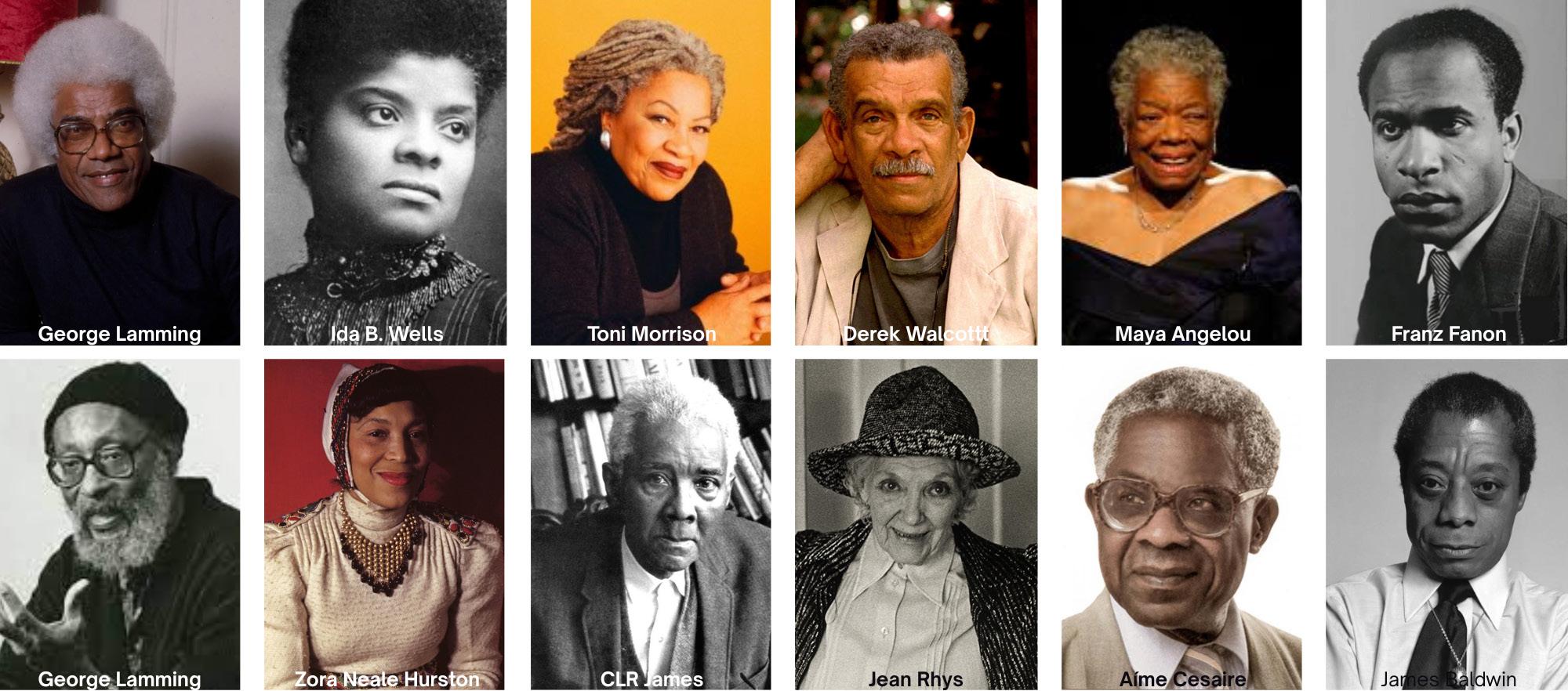
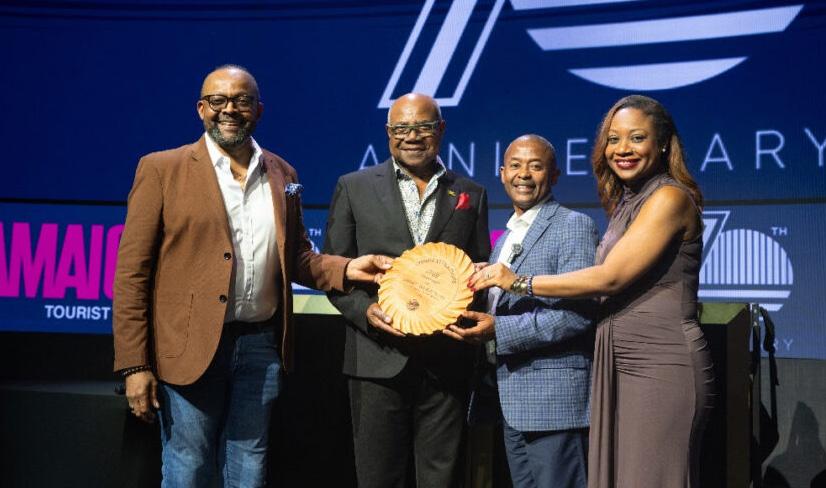















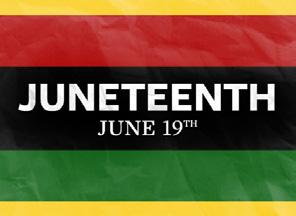
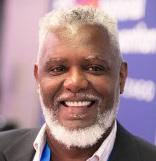
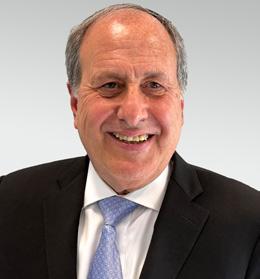

Juneteenth: The Black Independence Day and a Diasporic Celebration of Liberation - P 9
Juneteenth 2025: Chavis Urges America to Confront the Enduring Legacy of the Transatlantic Slave Trade by Stacy M. Brown - P 9
Episcopal Health Services Chief of Gastroenterology Urges Men to Mark Men’s Health Month with a Life-Saving Colonoscopy - P 17
Guatemala - First-Ever Gold Cup Win Over Jamaica - P 20

DR Congo: Human rights violations could amount to war crimes, UN experts say
Volker Türk told the Human Rights Council that the investigation and analysis undertaken by his office, OHCHR, had revealed “an apparent total disregard for the protection of civilians during and after military operations.”
The OHCHR’s Fact-Finding Mission in the eastern DRC is also investigating other alleged violations of international humanitarian law, “many of which may amount to war crimes,” he said.
After capturing cities and villages in early 2025, the M23 Rwanda-backed rebels arbitrarily arrested police officers and large numbers of other civilians, including children, the UN human rights office reported.
According to witnesses, those captured were, and are, still being held in “inhumane conditions,” and many were forcibly recruited into the ranks of the M23.
The Mission is also investigating alleged arbitrary arrests and enforced disappearances of suspected M23 supporters by the military intelligence arm of the DRC armed forces.
OHCHR also reported that members of the M23 carried out summary and extrajudicial executions, which likely amount to war crimes, said Mr. Türk.
The Mission is also investigating alleged summary executions by members of the DRC armed forces and DRC-backed Wazalendo militias.
Famine stalks two counties in South Sudan as fragile peace is threatened
The Integrated Food Security Classification scale shows a deterioration in conditions revealing emergency levels of hunger.
The warning comes amidst increased violence and 11 out of 13 counties are now facing emergency levels and 32,000 of these inhabitants are facing “catastrophic” level hunger conditions, almost three times previous estimates.
“We are seeing the devastating impact conflict has on food security in South Sudan,” said Mary-Ellen McGroarty, Country Director for the World Food Programme (WFP) in South Sudan.
“Conflict doesn’t just destroy homes and livelihoods, it tears communities apart, cuts off access to markets, and sends food prices spiralling upward,” Ms. McGroarty said.
In total, 7.7 million people across South Sudan will face acute food insecurity, accounting for over half of the entire population. Additionally, 2.3 million children in South Sudan face malnutrition, a rise from 2.1 million at the beginning of the year.
FAO expects these numbers to increase as the country prepares to enter the lean and wet season which will further diminish food supplies and potentially worsen displacement. The agency did note that counties in which violence has been largely absent have seen improvements in food insecurity as a result of increased crop production and humanitarian efforts. However, hunger continues.
From Himalayan melt to drowning shores, children lead the climate fight
For young people living on the frontlines, climate change disrupts education, health and safety, casting a pall of uncertainty over the future.
As countries race to meet climate goals, the UN Children’s Fund (UNICEF) is stepping in to ensure that children’s voices are not just heard, but central to shaping solutions.
UN News spoke with the heads of UNICEF in Nepal and the Maldives to explore how the agency is empowering youth, embedding climate resilience in schools and driving child-inclusive climate action.
A young girl stands next to a tap with a small jerry can in a mountain village in Nepal. Many houses lack piped water, so children often fetch water on their way home from school.
UNICEF Nepal A young girl stands next to a tap with a small jerry can in a mountain village in Nepal. Many houses lack piped water, so children often fetch water on their way home from school.
A daily reality
In a remote village in western Nepal, 11-year-old Sabu and her friends face danger daily on their way to school. Intensifying and unpredictable rains trigger landslides that wash away roads, and floods that submerge homes and farmland.
More Gazans killed trying to get food, healthcare near to ‘full disaster’
“We are walking the fine grey line between operational capacity and full disaster, every day,” said Dr Thanos Gargavanis, WHO trauma surgeon and emergency officer, speaking from the enclave.
The veteran UN medic’s comments came amid new reports on Tuesday morning that more Palestinians had been killed trying to access food, this time near an aid distribution site in Khan Younis in southern Gaza.
The mass casualty event left “hundreds of casualties, completely overwhelming Nasser Medical Complex” in Khan Younis, said WHO’s Representative in the occupied Palestinian territory, Dr Rik Peeperkorn.
Across Gaza today, health services are “barely available” and difficult to access, Dr Peeperkorn said, since more than 80 per cent of Gaza’s territory is under evacuation orders.
“The shrinking humanitarian space makes every health activity way more difficult than the previous day,” Dr Gargavanis added.
Nasser Medical Complex is the largest referral hospital in Gaza and the only remaining main hospital in Khan Younis. It is situated within the evacuation zone announced by the Israeli military on 12 June.
The nearby Al-Amal Hospital - operated by the Palestinian Red Crescent Society (PRCS) - continues to provide services...
A towering chapter in American politics closed on Friday as former President Bill Clinton, New York Governor Kathy Hochul, and House Democratic Leader Hakeem Jeffries joined hundreds at St. Patrick’s Cathedral to celebrate the life and legacy of former U.S. Representative Charles Rangel.
Rangel, a Korean War hero and pioneering legislator who served Harlem in Congress for nearly 50 years, passed away on May 26 at the age of 94. His funeral mass followed a rare public tribute—his body lying in state at New York City Hall, an honor pre-
viously reserved for historical giants like Abraham Lincoln and Ulysses S. Grant.
“America is better off today because of his service,” said Jeffries, who shared a personal story of being affectionately called “Jeff” by the legendary congressman. “With Charlie Rangel, you go with the flow,” he added with a smile.
Former President Clinton called Rangel “one of the most effective members ever to serve in Congress,” recalling his fierce determination to secure economic investment for Harlem during Clinton’s presidency—efforts that led to a significant
drop in unemployment in the district. “I don’t think I ever knew a happier warrior than Charlie Rangel,” Clinton reflected.
Rangel’s decorated career included co-founding the Congressional Black Caucus and becoming the first African American to chair the powerful House Ways and Means Committee. Before entering public office, he served with distinction in the Korean War, earning both a Bronze Star and a Purple Heart.
Governor Hochul described him as “a giant in American life” and pledged to
honor his legacy by renaming a street in Harlem after him—a fitting tribute for the man often referred to as the “Lion of Lenox Avenue.”
“This gathering isn’t just to mourn Charlie, but to celebrate an extraordinary life of public service, courage, and vision,” Hochul said.
As tributes echoed through the cathedral, one theme rang clear: Charles Rangel’s life was a testament to service, resilience, and unwavering love for Harlem and the American people.
See photo spread on page 8.
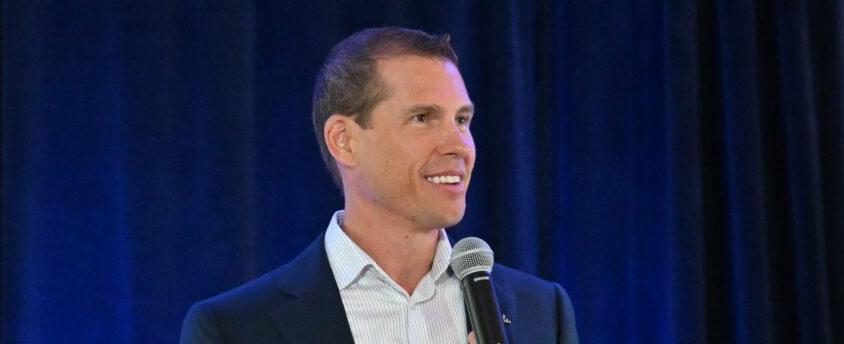
Adam Stewart, executive chairman of Sandals Resorts International and one of the Caribbean’s most influential business leaders, has been named to The Wall Street Journal’s prestigious CEO Council—an exclusive, invitation-only body of top global executives known for shaping the future of business and public policy.
Stewart joins a high-profile roster that includes leaders from companies such as Microsoft, Bank of America, the New York Stock Exchange, Toyota, Verizon, Deloitte, and TikTok. He appears at number 297 on a list of 359 CEOs, placing the Caribbean squarely within the global economic conversation.
“I am thrilled to join this powerful community of global leaders driving meaningful conversations and bold decisions,” Stewart said. “Representing Sandals Resorts and the Caribbean at this level is an honor. I look forward to sharing our unique perspective on innovation and the future of hospitality while connecting with some of the brightest, most influential minds in the business.”
As executive chairman of both Sandals Resorts International and the Jamaica Observer, Stewart builds on the legacy
of his father, the late Gordon “Butch” Stewart, who founded the Sandals brand in 1981. Under Adam Stewart’s leadership, the company has undergone bold transformation—expanding across the region and launching Sandals 2.0, a new era of luxury hospitality innovation.
Beyond hotels, Stewart’s impact spans education, community development, and sustainable tourism. He founded the Sandals Foundation, which supports initiatives in environmental preservation and youth empowerment across the Caribbean. His other venture, Island Routes, has become the region’s leading tour company, offering over 500 immersive cultural and nature-based experiences.
In 2023, Stewart was appointed Ambassador and Special Investment Envoy for Jamaica, a role underscoring his influence not only as a tourism executive but as a voice for regional development on the world stage.
With his appointment to the WSJ CEO Council, Stewart brings Caribbean innovation, resilience, and leadership to a global network that sets the tone for future economic and policy decisions.










Representative Yvette D. Clarke (NY-09) issued the following statement:
“Donald Trump’s deployment of United States Marines to the streets of Los Angeles is an authoritarian escalation unlike any before in American history. Let’s understand the facts. This all started with peaceful protests against the inhumane kidnapping of our immigrant neighbors. The LAPD had largely contained this situation before it was exacerbated by National Guardsmen whom the president illegally seized control over. And now, under the pretense of crushing the very chaos he created, the president has ordered 700 active-duty Marines to engage in so-called law enforcement, which they have no legal or ethical right to conduct.
BlackPressUSA.com - 47 Million Americans. 1 Voice.
“We must recognize, and recognize quickly, that Los Angeles is only the beginning. In a matter of months,
weeks, or even days, some contrived crisis may reach our cities. And then we’ll find the Armed Forces on our soil, with their guns trained on our people. That’s always been his goal – to ensure every American knows the fear our immigrant neighbors now feel. As he threatens to arrest a sitting governor and readies to brutalize protestors to feel like the strongman he never will be, we all must understand that Trump established a dangerous new precedent today. Time is running out to prepare for exactly what that means.
“Whatever lies ahead, Congressional Democrats will stand in solidarity with our California delegation, and we will support any efforts to oppose the president’s overreach. I urge all protestors to remain peaceful and to rise above Donald Trump’s desperation for chaos and confusion. He’s relying on the violence of protestors to justify his own. Do not give him what he wants.”
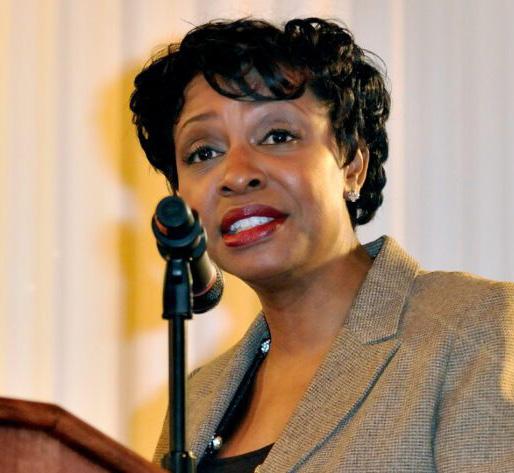

The United States has signaled a potential expansion of its travel restrictions, placing seven Caribbean countries that operate Citizenship by Investment (CBI) or Citizenship by Descent (CBD) programs under heightened scrutiny.
According to a recent internal memorandum issued by the U.S. Department of State, the countries in question have been flagged for failing to meet key U.S. security and immigration standards. These include concerns over passport security, inadequate identity verification systems, high U.S. visa overstay rates, and insufficient cooperation with U.S. immigration enforcement, particularly in repatriating nationals ordered deported.
The memorandum gives the affected nations a 60-day window to implement corrective measures. Failure to act within this timeframe could result in the suspension or restriction of U.S. visa issuance to their citizens. This move could severely impact tourism, education, and investment-related travel.
Though the document did not publicly
name the seven Caribbean countries, it aligns with Washington’s broader efforts to tighten travel access from nations deemed high-risk or uncooperative on immigration issues. This is part of a larger policy shift that has already seen full or partial bans imposed on countries like Haiti, Cuba, Sierra Leone, and Venezuela. Critics have raised concerns about the policy’s potential to undermine the economies of small island nations that rely heavily on tourism and international investment. Others argue it reflects a more aggressive U.S. posture toward global citizenship programs, which some American officials see as vulnerable to misuse by individuals seeking to bypass stricter immigration routes.
The memo comes amid a wider review of visa and border policy as the United States continues to prioritize national security and immigration enforcement. As the deadline approaches, the affected Caribbean governments may need to reform their CBI frameworks and immigration protocols to avoid travel consequences for their citizens.





Senior Superintendent Allister Guevarro has officially been appointed Commissioner of Police (CoP)-elect for Trinidad and Tobago, following a unanimous vote by both Government and Opposition in Parliament. In a statement after his confirmation, Guevarro said he was “deeply humbled by Parliament’s confirmation” and gave thanks to God for guiding his journey.
“I am grateful to the Honorable Members of Parliament for their confidence in my leadership, and to the citizens of Trinidad and Tobago for their continued support,” said Guevarro, who currently serves in the Special Branch. He commended the other candidates for their dedication and integrity during what he described as a transparent and rigorous selection process, saying their efforts serve as inspiration for future leaders in the Trinidad and Tobago Police Service (TTPS).
Guevarro pledged to uphold the TTPS vision: “To make every place in Trinidad and Tobago safe.” He acknowledged the serious issues facing the country—including school violence, criminal activity, gang influence, firearm-

related crime, and road safety—and stressed the need to rebuild public trust.
“I look forward to partnering with stakeholders across society to address these matters with integrity, transparency, and resolve,” he said.
Guevarro, 49, who will succeed acting CoP Junior Benjamin, was ranked first on the Police Service Commission’s merit list. Benjamin has led the TTPS since February following the suspension of former CoP Erla Harewood-Christopher amid an investigation into the importation of sniper rifles by the Strategic Services Agency.
A father of two and avid hunter, Guevarro hails from the remote village of Santa Maria, Moruga. He began his policing career in 1996 and was transferred to the Special Branch just two years later after demonstrating a natural aptitude for investigations.
Acting CoP Benjamin extended heartfelt congratulations and pledged his full support.
“We are here to support him and give him all that he needs to do his job successfully,” said Benjamin.
When asked about not receiving the permanent
post himself, he added, “It has always been about Team TTPS. We must never fall in love with an office. I believe my life is ordered by God, and when that purpose is fulfilled, the right person is placed there.”
Former CoP Harewood-Christopher also praised Guevarro, calling him “qualified and competent” and recalling his professionalism during their time working together.
“The TTPS is well poised to benefit substantially from his leadership,” she said.
President of the TTPS Social and Welfare Association, ASP Gideon Dickson, welcomed Guevarro and committed the association’s full support.
“We, as an association, commit to supporting his strategic direction and leadership,” said Dickson, who also thanked Benjamin for his leadership during his tenure.
From a modest upbringing to the nation’s highest policing office, Guevarro’s rise reflects a journey marked by resilience, integrity, and unwavering commitment to service.
As tensions rise across the country over President Donald Trump’s intensified immigration crackdown, a growing coalition of religious leaders is urging Americans to take to the streets—peacefully. Among them is Rev. Edward Anderson, who stood between protesters and law enforcement during a recent rally in Los Angeles, acting as a human buffer in defense of nonviolent resistance.
Anderson, pastor of McCarty Memorial Christian Church in West Adams Terrace, believes that faith compels action in the face of injustice.
“It is imperative that people of faith speak out because silence in the face of injustice is complicity,” he said.
While opinions within the faith community remain divided, many religious leaders are calling for nonviolent action in response to the administration’s immigration raids. Federal agents, backed by National Guard troops and Marines, have begun detaining undocumented immigrants—including long-time residents with no criminal records—sparking daily protests in Los Angeles. Though most demonstrations have been peaceful, some have turned confrontational.
Los Angeles Mayor Karen Bass and other elected officials have called for restraint, a sentiment echoed by religious leaders who see their presence as vital in de-escalating tensions.
“The moral message is clear: we do not accept the world as it is. We respond to cruelty with courage, to hatred with love,” said Rabbi Sharon Brous during an interfaith vigil downtown.
Rev. Jacqui Lewis of Middle Collegiate Church in New York City emphasized that “we’re like Jesus – nonviolent.” Her church has supported immigrant families with food, shelter, and advocacy. She added, “But nonviolence isn’t silence… It often means confronting people with the truth. Social change has happened because people of faith and spiritual imagination guided the streets peacefully.”
The legacy of nonviolent protest in America is long and proven, from Rev. Martin Luther King Jr.’s Civil Rights marches to today’s demonstrations. Yet experts note that such resistance demands resilience.
“Principled nonviolence comes from this awareness that the divine resides in each and every one of us and every life is precious,” said Michael Nagler of the Metta Center for Nonviolence, citing teachings from the Bhagavad Gita.
“You believe that a solution can always be worked out where all parties have their legitimate needs met.”
Nagler acknowledged that while nonviolence may not deliver instant change, it avoids casualties and brings deeper societal transformation. In today’s climate, that might mean pressuring the administration to adopt more humane immigration policies.
Rev. Paul Brandeis Raushenbush, president of the Interfaith Alliance, highlighted the protective power of clergy in protest spaces:
“They can provide a sense of shield, a spiritual force… a reduction of harm and nonviolent presence in a space where it
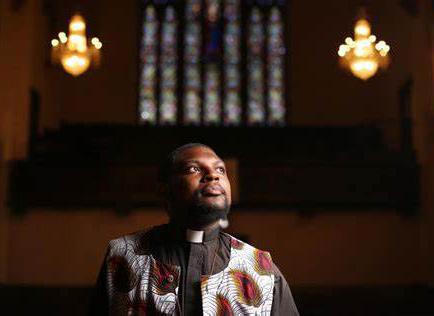
appears that there’s only a spiraling of violence.”
Anderson’s congregation has been working with local organizations and unions to host prayer vigils, educate migrants on their rights, and train fellow clergy in how to respond if ICE agents appear at their places of worship.
“We are not only called to preach justice but to embody it, to be present in the pain of our people, and to lift up the sacred worth of every human life,” Anderson said.
Yet support for the crackdown is not absent within the faith community. Prominent evangelical leader Rev. Robert Jeffress of Dallas stands by Trump’s policies, stating,
“I support 100 percent President Trump’s goal of protecting our country from evildoers, whether from within or without… The president has authority from the Constitution and the Bible to do exactly what he’s doing.”
Regarding protests, Jeffress added, “People have a right to be wrong. But they don’t have the right to be wrong in a violent manner.”
As immigration tensions continue to mount, America’s faith leaders remain deeply engaged—not just as moral voices, but as active participants in shaping the path forward through nonviolent means.
Haiti has been named among five global hot spots at immediate risk of famine, according to a joint report released Monday by the UN’s Food and Agriculture Organization (FAO) and World Food Program (WFP).
The report, titled Hunger Hotspots, identifies 13 countries where hunger is escalating rapidly due to conflict, economic instability, and climate-related disasters. Alongside Haiti, the report lists Gaza, Sudan, South Sudan, and Mali as facing the most critical levels of food insecurity over the next five months.
WFP Executive Director Cindy McCain issued a stark warning: “This report is a red alert. We know where hunger is rising and we know who is at risk. Without funding
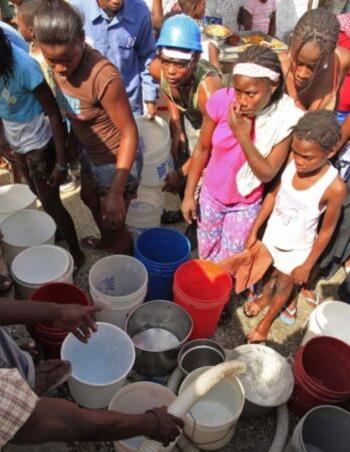
and access, we cannot save lives.”
In Haiti, escalating gang violence has forced thousands to flee their homes, disrupting food supply chains and aid distribution. An estimated 8,400 people are already experiencing catastrophic levels of hunger. The report warns that without immediate intervention, the situation could spiral into famine — a condition defined by extreme food scarcity, acute child malnutrition, and death from starvation or disease.
Sudan’s ongoing conflict has left nearly 25 million people food insecure, while South Sudan faces both flooding and political turmoil, placing over 63,000 people in famine-like conditions. In Gaza, more than 2 million people are enduring acute
food shortages under an ongoing blockade and military campaign.
FAO Director-General QU Dongyu emphasized the importance of investing in local food systems: “Protecting people’s farms and animals to ensure they can keep producing food where they are, even in the toughest and harshest conditions, is not just urgent – it is essential.”
While the report paints a grim picture for several regions, it also notes some improvement. Countries like Ethiopia, Kenya, and Lebanon have been removed from the hunger watchlist thanks to stabilization efforts and better food security outcomes.

Barbados is leading an ambitious call to reform global finance through the Bridgetown Initiative, a groundbreaking proposal by Prime Minister Mia Mottley aimed at making the international financial system more just, climate-resilient, and inclusive of developing nations.
First unveiled at the United Nations in 2022, the initiative advocates for emergency financing mechanisms, climate-adaptive debt solutions, and a major expansion of development bank lending. “This is our world. This is our time to make that defining difference,” said Mottley, urging global action.
Backed by countries like France and organizations including the IMF and World Bank, the plan targets key reforms. These include:
Faster access to low-conditionality funding for countries in crisis;
A $1 trillion increase in multilateral development bank (MDB) lending for climate and sustainable development goals; New climate recovery mechanisms, such as debt clauses that suspend repayment after disasters.
The Bridgetown Initiative has evolved over three versions. In its latest 3.0 version (2024), proposals include new global taxes on wealth, fossil fuels, aviation, and ship-
ping to fund climate action. It also pushes for reform of credit rating agencies and universal “natural disaster clauses” in debt contracts.
Some proposals—like climate-resilient debt clauses—have already seen adoption. MDBs and countries like Barbados and Grenada have implemented these clauses, allowing debt repayment pauses after climate shocks.
Critics and experts acknowledge the initiative’s impact in shifting the global narrative. “Bridgetown has entered the policy debate,” says Rishikesh Bhandary of Boston University, though he notes the need for clearer institutional pathways to scale financing access.
The IMF’s $40 billion Resilience and Sustainability Trust Fund, launched in 2022, and the World Bank’s ongoing reform agenda, are among Bridgetown’s early achievements. Still, challenges remain. An internal UN document notes U.S. opposition to key reforms, and MDB climate efforts face political pushback.
Despite limited funding—like the UN Loss and Damage Fund, which received just $495 million so far—momentum is building. COP29 recently endorsed a new $300 billion annual global climate finance target, though still below the $1.3 trillion goal set by developing nations.
“The next steps must ensure quality and quantity in climate finance,” said Sandra Guzman, a Latin America and Caribbean climate finance expert. As Mottley’s proposal nears its third anniversary, observers agree its success will hinge on sustained political will and responsiveness to the diverse needs of vulnerable countries.

Regional food giant Grace Kennedy has been formally invited to establish manufacturing operations in Guyana, according to Finance Minister Dr. Ashni Singh, who made the appeal during the fourth Jamaican export and investment mission to the country.
Speaking to representatives from Grace Kennedy, Dr. Singh praised the company’s extensive global reach and emphasized Guyana’s growing potential as a hub for agro-processing.
“Grace Kennedy has a huge global footprint. You go into mainstream supermarkets in the U.S. and you see Grace Kennedy products on the shelves,” Singh noted.
“We would be delighted for you to come to Guyana to set up a manufacturing presence,” he added.
The Finance Minister highlighted Guyana’s robust agricultural sector, pointing out its thriving coconut industry as a key opportunity.
“The truth is, Grace Kennedy coconut water should have in the fine print – Product of Guyana. Your coconuts shouldn’t come
from Thailand, your coconuts should come from Guyana,” Singh remarked. With an abundance of fruits and vegetables being cultivated across the country, Singh said Guyana is well-positioned to support value-added manufacturing under the Grace brand.
“Agro-processing is extremely important. All those crops we grow could easily be packaged and branded as Grace products,” he explained.
Dr. Singh reaffirmed the government’s openness to working with Grace Kennedy directly or through partnerships with local manufacturers.
“It can be a Guyanese manufacturer, and you work out with them your standards, branding and labelling — that is also a possibility,” he said.
The invitation underscores Guyana’s commitment to boosting foreign direct investment in its agro-industrial sector and aligns with Grace Kennedy’s mission to expand its regional footprint through strategic manufacturing and sourcing partnerships.
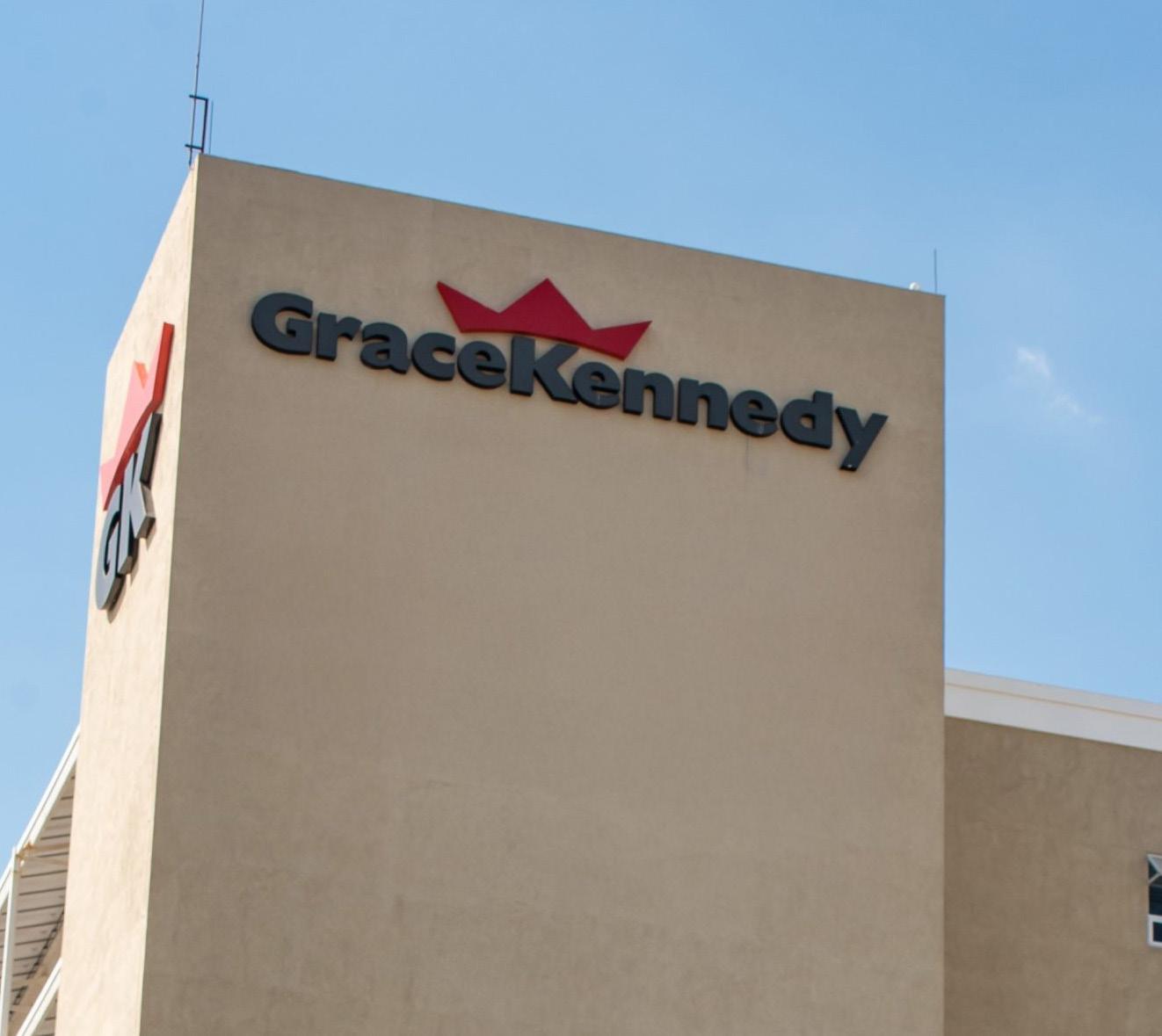





Every year on June 19th, communities across the United States mark Juneteenth—known by many as Black Independence Day. This is not merely a commemorative event; it is a powerful expression of freedom delayed but never denied, a celebration rooted in struggle, survival, and ultimately, the triumph of the human spirit.
Yet, for us at Carib News, Juneteenth is not just a national holiday. It is a diasporic moment—a celebration of liberation that resonates deeply within the hearts and minds of Black people across the globe. It reminds us of the interconnectedness of our struggles for emancipation in the United States, in the Caribbean, and across the wider African diaspora. These struggles may have unfolded in different geographies and at different times, but they were bound by a shared vision: freedom, dignity, and self-determination for a people oppressed by slavery and colonialism.
In the United States, Juneteenth commemorates the day in 1865 when enslaved African Americans in Galveston, Texas, were finally informed of their freedom, more than two years after the Emancipation Proclamation. It was the last domino to fall in the formal end of slavery in the U.S., a moment both joyous and painful. Painful because freedom had been withheld even after it was won; joyous because that long overdue declaration became a spark for hope, unity, and celebration. Meanwhile, across the Caribbean, emancipation came through fierce resistance—
revolts in Jamaica, Haiti, Barbados, and across the region helped usher in the abolition of slavery, with dates varying from the early 1800s to 1838. These movements were born of the same yearning, the same fire. In every sugarcane field and every cotton plantation, the heartbeat of rebellion echoed the words: we are not property; we are people.
It is this shared foundation that allows us to see Juneteenth not just as an American holiday, but as part of a global diasporic tradition of Black liberation. At Carib News, we call this vision the Golden Triangle—a symbolic and strategic partnership among Africa, the Caribbean, and the African diaspora in the United States. The Golden Triangle offers one of the most potent frameworks for cultural and political solidarity among people of African descent. It is not merely geographic—it is historical, spiritual, and cultural. It is the triangle of resistance and rebirth, of memory and momentum. This triangle connects the intellectual legacies of W.E.B. Du Bois and Marcus Garvey, the artistic traditions of Bob Marley and Nina Simone, and the spiritual lineages of the Orisha, Rastafari, and the Black Church. Juneteenth, in this context, becomes an opportunity to reaffirm the unity of this triangle. It calls us to transcend borders, to remember that the African American experience and the Caribbean experience are deeply entwined. Our oppressors worked hard to divide us—by island, by color, by class—but our liberation has always de-
manded that we come back together. This year, more than ever, we turn to our writers. Across the diaspora, writers have been the keepers of our truths and the architects of our freedom dreams.
From Toni Morrison and James Baldwin to Claudia Jones and Kamau Brathwaite, from Audre Lorde to Aimé Césaire, our literary ancestors have always reminded us: we are in the same boat. A boat once used to carry us into bondage, now reimagined as a vessel toward collective healing and political power. These writers have chronicled our pain and our progress. They have spoken of resistance, identity, liberation, and the many ways in which colonialism has tried to fragment our sense of self. Today, they urge us to confront structural racism, economic inequality, and cultural erasure with the same ferocity as those who fought for emancipation centuries ago.
As Juneteenth approaches, we must read them, honor them, and uplift new voices who continue to shape our future. Juneteenth is a holiday grown out of a history of exploitation and exclusion. It is the story of people who made joy a form of resistance and remembrance a political act. It teaches us that the chains of slavery may have been physical, but the will to be free has always been spiritual. It is incumbent upon us to expand the meaning of this day beyond parades and pageantry. It must be a moment of global solidarity. In a time marked by fragmentation—political, social, cultural—June-
teenth must serve as a reminder of what unites us. Across borders and oceans, we are one people with a shared past and a collective destiny.
Let this Juneteenth be a call to action— to deepen our relationships across the diaspora, to confront injustice wherever it lives, and to pass down to future generations the truth that we were never just victims. We were, and are, the visionaries, the freedom fighters, the authors of our own emancipation.
In Solidarity, In Struggle, In Celebration At Carib News, we pledge to continue telling these stories, building these bridges, and shaping a future where Black liberation is not just remembered, but realized— globally. Let Juneteenth be not only a day of remembrance, but a movement for the future.
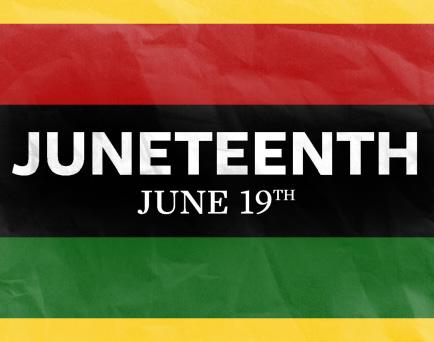
by Stacy M. Brown
As the nation marks Juneteenth—commemorating June 19, 1865, when federal troops enforced the Emancipation Proclamation in Texas—Dr. Benjamin F. Chavis Jr. calls for a deeper reckoning with the global and generational impact of the Transatlantic Slave Trade.
Chavis, a renowned civil rights leader, former executive director of the NAACP and President and CEO of the Black Press of America, co-authored The Transatlantic Slave Trade: Overcoming the 500-Year Legacy (October 8, 2024; ISBN 978-159079-569-9) with Stacy M. Brown, an accomplished journalist and author and senior national correspondent for Black Press USA.
The book features a powerful foreword by
hip-hop legend Chuck D and is endorsed by NBA Hall of Famer Isiah Thomas. Public Enemy’s legendary leader Chuck D writes a powerful foreward in the book/ wikimedia commons
A Legacy That Still Shapes Lives: Environmental Racism: Dr. Chavis coined the term “environmental racism” in the early 1980s. His 1986 study, Toxic Waste and Race, revealed how hazardous waste sites disproportionately impact communities of color—leading to widespread health disparities and environmental injustice.
Mass Incarceration, Inequality, and Systemic Racism: “The chains of slavery may have been broken,” Chuck D writes, “but the shackles of systemic racism are still
very much intact.” The book links modern injustices—from police brutality to education gaps—directly to slavery’s legacy.
Global Repercussions: The transatlantic slave trade left marks not only on American soil but around the globe, influencing foreign policy, economic disparity, and racial inequality from the U.S. to the Caribbean and beyond.
Modern-Day Consequences: From gentrification and poverty to voter suppression and underfunded schools, Black communities continue to face barriers rooted in this centuries-old system of oppression.
“Too many still refuse to connect the dots between slavery and today’s racial injustices,” said Dr. Chavis. “This book is a wake-up call—a demand for awareness
and a call to action.”
A Must-Read for a Nation in Reflection: The Transatlantic Slave Trade: Overcoming the 500-Year Legacy is a timely, urgent, and unapologetic look at how the horrors of the past continue to shape present-day realities. It honors the resilience of Black people while demanding America finally reckon with truth and justice.
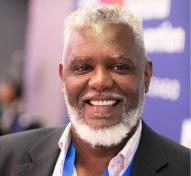
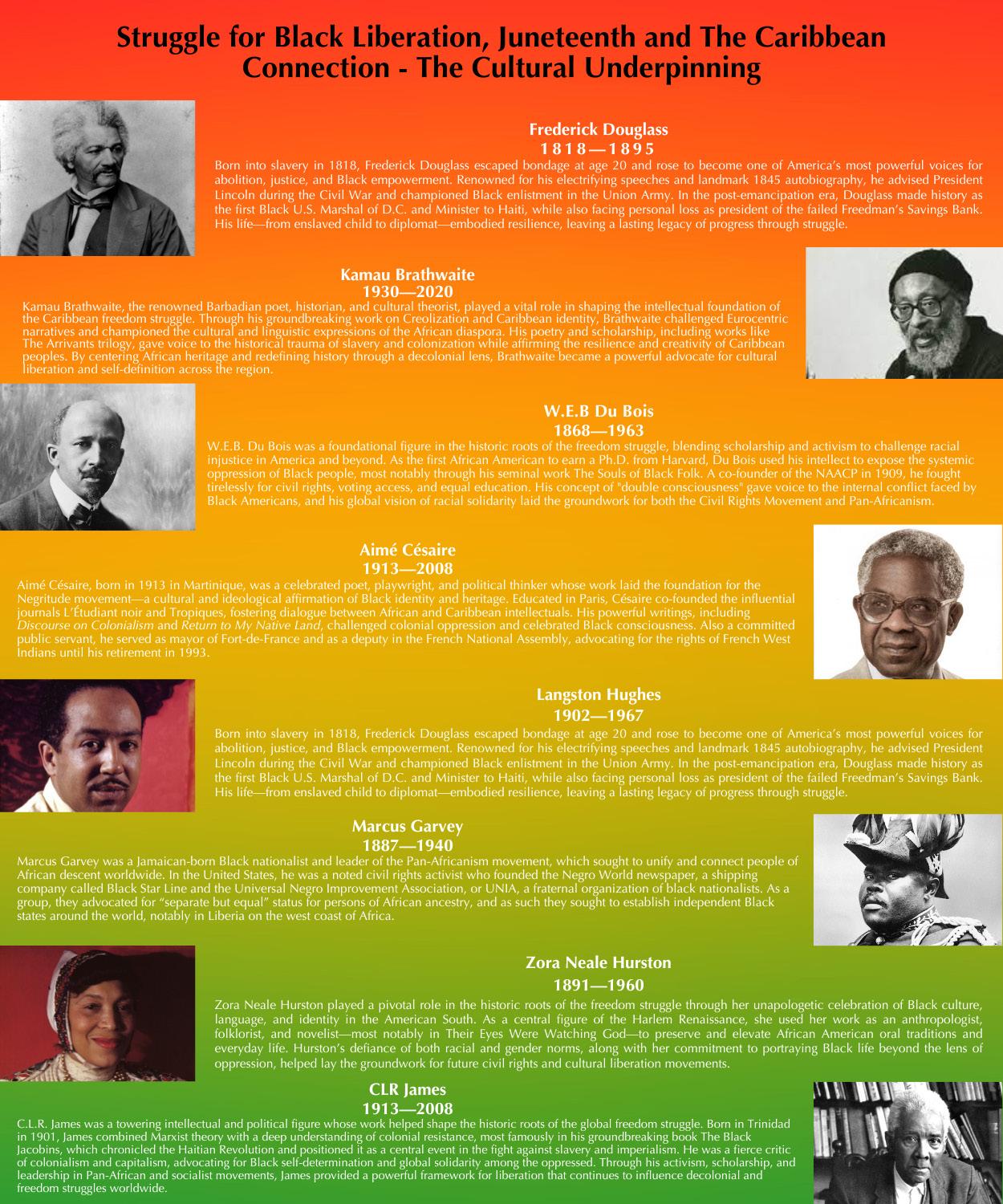

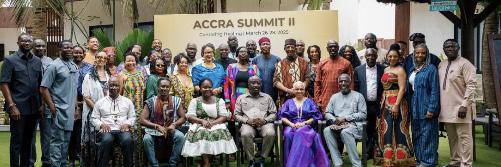
As the world prepares to mark Juneteenth—an annual commemoration of the end of chattel slavery in the United States—the Global Circle for Reparations and Healing (GCRH) has issued a powerful declaration urging Africans on the continent and across the diaspora to center healing in the ongoing journey toward justice. The Centering Healing Declaration, released today, calls on Global Africans to confront and recover from the deeply rooted psychological, emotional, and spiritual injuries inflicted by centuries of enslavement and colonization. These harms, the declaration emphasizes, remain largely unmeasured and untreated, yet
continue to affect the collective well-being of people of African descent worldwide.
The declaration emerged from a groundbreak ing summit convened in Accra, Ghana, by GCRH, in partnership with the African Union (AU) and Justice and Repair, and hosted by the Africa Transitional Justice Legacy Fund (ATJLF). The international gathering brought together participants from Africa, the United States, the Caribbean, South America, and Europe, all united by the AU’s 2025 Theme of the Year: “Justice for Africans and People of African Descent Through Reparations.”
At the heart of the declaration is a call to action
centered on three core insights: Centuries of Anti-Blackness Have Resulted in Unhealed Behaviors
These include learned mistrust, internalized inferiority, and the adoption of values that prioritize individualism and non-African worldviews—behaviors that undermine collective health, solidarity, and the fight for reparations. Collective Healing is Essential for Progress
The declaration stresses that moving forward requires communities to consciously shift from “unhealed” to “healed” behaviors—healthy, African-centered responses that undo internalized damage and promote well-being. Trust is the Foundation of Healing
Rebuilding trust among African people, fractured by generations of division and oppression, is crucial for collective recovery and mobilization.
In addition to these insights, the declaration outlines a three-part plan of action to construct a global infrastructure for healing: Dismantle the Myth of White Supremacy
Build a movement that challenges the false hierarchy of human value and the long-standing
lie of Black inferiority that has dehumanized and disadvantaged African people for generations.
Establish a Global Community of Practice
Create spaces where Africans and people of African descent can engage in collective healing through culturally grounded processes, knowledge-sharing, and mutual support.
Engage African Leadership in the Healing Agenda
Call upon AU Heads of State and Government to join with global African civil society in advancing healing as a necessary path to reparatory justice and fulfillment of the 2025 AU theme.
As Juneteenth draws near, the declaration offers a bold and unifying vision: freedom not just from bondage, but from the psychological chains left behind. To join the movement and learn more, visit https://gcrh.org/who-we-are/.


Caribbean American Lawyers Association (CALA) 2nd Annual Gala and Awards


In an era where most family businesses don’t survive beyond the second generation, ESRA Realty & Property Management is proudly celebrating 100 years of uninterrupted Black ownership and leadership in New York real estate — and descendants of its founding matriarchs still run it.
Founded in 1925 by three pioneering Caribbean women – including Lucille Edwards, the first Black woman licensed to practice law in New York State – ESRA has weathered nearly every obstacle imaginable: the Great Depression, redlining, the crack epidemic, and the gentrification of Harlem. What began as a lifeline for Black renters denied housing by white landlords has grown
into one of the most enduring Black-owned real estate firms in the country.
“This isn’t just a business milestone — it’s a family promise fulfilled across generations,” said Ramona Grey-Harris, retired ESRA property manager and daughter of co-founder Sarah Edwards. “My grandmother believed in property as power. We’ve carried that torch for 100 years — and we’re just getting started.”
To honor this unprecedented achievement, ESRA is launching a yearlong Centennial Campaign focused on intergenerational wealth, Harlem pride, and the transformative power of Black-led community development.
Signature events include:
June 21, 2025 – Black Legacy Business Panel
September 13, 2025 – Harlem Block Party: Celebrating Ownership and Community
November 11, 2025 – Centennial Gala: Honoring 100 Years of Service
Each gathering is designed to highlight how real estate intersects with community care, economic mobility, and legacy-building. The campaign also includes educational outreach, historical storytelling, and digital content meant to inspire the next generation of proper-

ty owners, managers, and developers.
“Our story proves that legacy isn’t something you leave — it’s something you build, day by day,” said Jordi-Lakeem Foster, Marketing Strategist for ESRA’s Centennial Campaign. “This year is about reflection, reconnection, and reimagining the future of Harlem — with ESRA at the center.”
Long before the term “generational wealth” became popular, the Edwards sisters embodied it. Lucille Edwards graduated from NYU Law in 1929 — one of only four Black women in her class — and became a fierce legal advocate for Harlem tenants. Sarah Edwards and her sisters worked as real estate agents, property managers, and housing advocates when Black ownership was considered radical.
Today, ESRA manages over 60 properties across Harlem, while also maintaining investment holdings in New Jersey, Florida, Texas, North Carolina, Pennsylvania, and Jamaica. Their impact continues to grow — not just through property, but through mentorship, education, and service.
“This company has never been just about real estate,” added Aden Seraile, third-generation co-owner of ESRA. “It’s about self-determination — for our family, for Harlem, and for the people we serve.”

































A Florida woman who fatally shot her Jamaican husband during a domestic dispute has been sentenced to 21 years in prison.
Denise Nicole Malcolm, 46, pleaded guilty last week to second-degree murder with a firearm in the killing of her husband, 52-year-old Rohan Malcolm, a former employee of the Jamaica Observer. The incident occurred on August 31, 2024, at their Northwest 43rd Street home in
Coral Springs.
According to the Coral Springs Police Department, Denise Malcolm told investigators she no longer trusted her husband and had reached her breaking point after years of what she described as lies and infidelity.
Court documents revealed that one of the couple’s 14-year-old twin sons witnessed his father bleeding on the bedroom floor after being shot multiple times.
A Nigerian man has been sentenced to six years in prison following his conviction for orchestrating a series of romance and package delivery scams that defrauded several Guyanese of millions of dollars in 2022.
Matthew Ejike Nwachukwu was found guilty on Thursday and handed a threeyear prison sentence on each count, to run consecutively.
Nwachukwu’s conviction follows a comprehensive investigation by Guyana’s
Special Organized Crime Unit (SOCU), which unearthed evidence linking him to multiple fraudulent schemes.
According to SOCU, Nwachukwu acted as a key accomplice to a foreign-based mastermind – reportedly a German national – who posed as a romantic interest to unsuspecting victims across Guyana.
One of the victims testified that she was lured into a long-distance relationship with a man claiming to be German.
A 30-year-old taxi driver in Guyana will return to court on July 16 after he was granted GUY$700,000 bail on charges that he obtained an estimated GUY$29 million by false pretence in two alleged land fraud schemes.
Senior Magistrate Fabayo Azore granted Jomo Campbell bail when he appeared in the Georgetown Magistrates’ Courts, pleading not guilty to the two charges of
conspiracy to commit a felony.
The prosecution alleges that between April 1 and May 22 this year, Campbell conspired with persons known and unknown to fraudulently obtain GUY$13 million by forging documents related to a parcel of land at Plantation Providence, East Bank Demerara (EBD).
The alleged false documents were intended to falsely certify the authorisation to sell





the land, resulting in a fraudulent financial transaction.
He is also charged with conspiring to obtain GUY$16 million between February 28 and March 19 this year under similar circumstances for the land also at Plantation Providence, EBD.
His attorney, Yuborn Allicock, said that his client has no prior convictions or pending charges and is a father of one in a com-
mon-law relationship.
He said he is also not a flight risk or a danger to society and has cooperated with investigators.
However, the prosecution objected to bail, citing concerns that Campbell may be involved in ongoing investigations of a similar nature.
The prosecutor told the court that Camp-






June is Men’s Health Month. Jay Fenster, MD, Chief of Gastroenterology at Episcopal Health Services (EHS) is urging men across the community to take charge of their health by scheduling a life-saving colonoscopy.
Colorectal cancer is the second-leading cause of cancer-related deaths in the United States. Fortunately, it’s also one of the most preventable cancers – if
detected early.
“Colonoscopy is the most effective screening modality that actually prevents cancer from developing,” said Dr. Fenster. “Our goal is to make the procedure as safe and comfortable as possible. We are excited about the use of state-of-the-art technology with artificial intelligence, to improve patient care.”
It’s a common misconception that
screening is only necessary for those with symptoms or a family history. In reality, while certain individuals may be at higher risk, screening is important for everyone.
If you are 45 and or older, speak to your primary care physician for a referral. Take charge of your health. Call 718-EHS-DOCS to schedule your colonoscopy today.
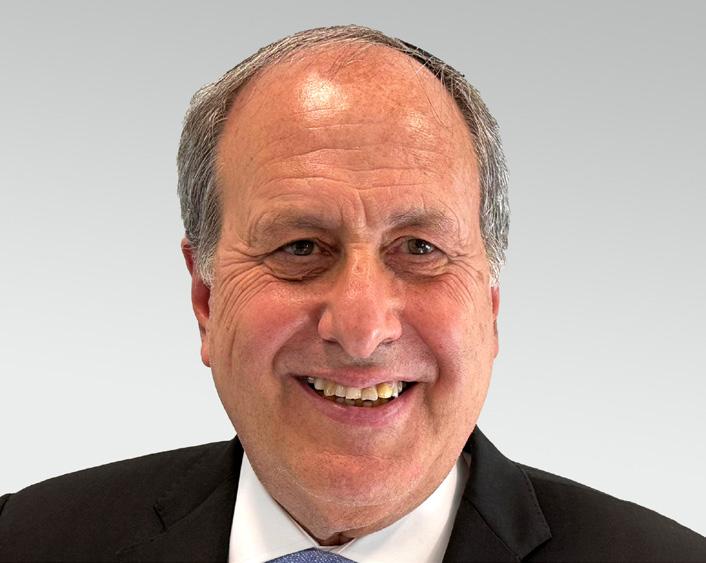
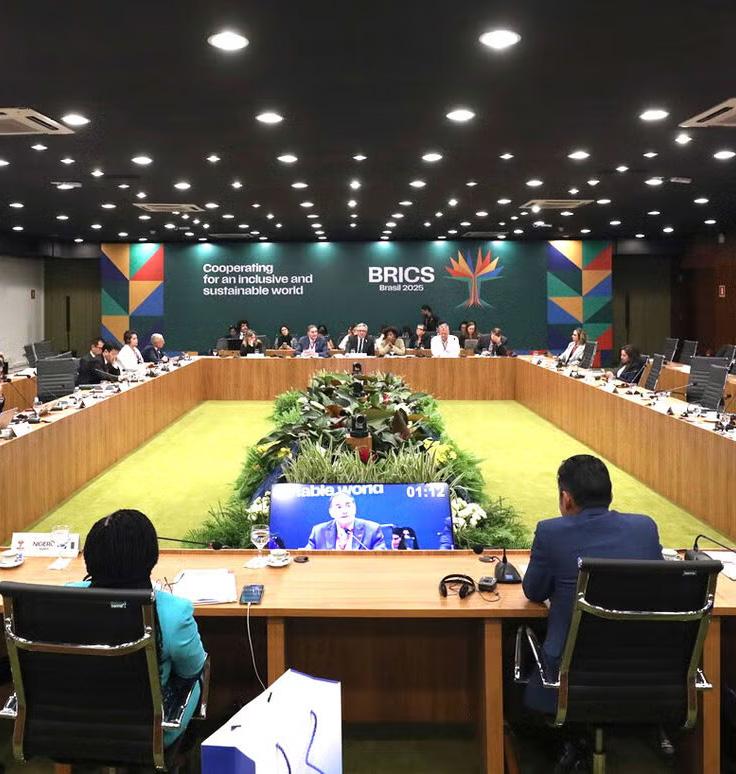
The Pan American Health Organization Director (PAHO), Dr. Jarbas Barbosa, has called for joint efforts and new partnerships to address the priorities outlined in the BRICS health agenda, including innovation, equity, food systems for healthy diets, and pandemic preparedness.
“The BRICS countries are not only economic and political powers but also public health leaders,” said Dr. Barbos during the opening ceremony of the 15th BRICS Ministers of Health Meeting, in Brasilia, Brazil today.
“Together, your countries represent over 40% of the world’s population, and your advances in health coverage, epidemic response, and local innovation have global relevance.”
For the PAHO Director, the countries of the Americas – particularly in Latin America and the Caribbean – face similar structural challenges as BRICS countries and are working towards aligned health priorities, including through addressing the burden of noncommunicable diseases, modernizing health systems, preparing for the impacts of climate change on health, promoting digital health and innovation, eliminating communicable diseases and promoting healthier diets.
“These shared goals present a clear opportunity for BRICS and countries of the Americas to learn from one another, collaborate more deeply, and co-develop the tools and solutions needed to protect health and advance development,” he said.
“PAHO is fully committed to supporting re-
gional and global initiatives that elevate health as a driver of economic opportunity and social inclusion,” the Director added, underscoring the role of the Organization as a strategic partner.
The 15th BRICS Ministers of Health Meeting, held on 17 June, brought together Ministers of Health and other high-level authorities from the following countries: Brazil, Russia, India, China, South Africa, Cuba, Egypt, Ethiopia, Indonesia, Iran, Malaysia, Nigeria and the United Arab Emirates.
During the Meeting, the BRICS delegates also approved a Declaration to strengthen cooperation in health. Under the Declaration, the countries will work together to address global health challenges, includeg through Global South collaboration.
Other areas of focus include strengthening local and regional production of medicines, vaccines and health supplies; accelerating health equity through the elimination of socially determined diseases; ensuring equitable access to tuberculosis-related innovations; advancing voluntary regulatory convergence; expanding health research; promoting vaccine research and development; strengthening Artificial Intelligence in healthcare; and promoting sustainable and resilient health infrastructure.
“I would especially like thank [for their support to BRICS] the World Health Organization (WHO) and PAHO, represented here by Dr. Jarbas Barbosa”, said the Minister of Health of Brazil, Alexandre Padilha, following approval of the Declaration.
Addressing non-communicable diseases
During the Ministerial Meeting, Dr. Barbosa also participated in a High-Level event on the Promotion of adequate and healthy eating practices and their contributions to the prevention of Noncommunicable Chronic Conditions.
Globally, NCDs, including cardiovascular diseases, cancer, chronic respiratory diseases, and diabetes, are responsible for approximately 71% of all deaths, many of which are preventable. Yet while the world has seen a dramatic and sustained rise in the burden of NCDs “less than 2% of official development assistance is allocated to NCDs,” said the PAHO Director.
“Unhealthy diets – rich in trans fats, saturated fats, free sugars, and sodium, and poor in whole grain, fruits, legumes, and vegetables –
are a central driver of the NCD epidemic,” he added.
These diets are driven by the global rise in ultra-processed foods, the aggressive marketing of which has “fueled a rapid nutritional transmission across both high- and low-income
the BRICS countries shared key experiences and lessons learned to prevent noncommunicable diseases, such as front-of-package warning labels, taxation of sugar-sweetened beverages and regulation of unhealthy food marketing.

At age 9, after a flat calypso performance, Machel Montano whispered to himself backstage: “No, fix it.” That moment sparked a lifelong mission to make soca irresistible and relevant. Unlike peers who chased foreign trends, Montano dedicated over four decades to elevating Caribbean music on the global stage. Today, with an unprecedented 22 major monarch titles — Trinidad’s coveted musical crowns earned through lyrical battles and cultural storytelling — he stands as soca’s guardian and innovator.
Montano’s journey began in 1984, inspired by global icons but driven by a passion for Caribbean rhythms. His 1986 debut single, “Too Young To Soca,” launched him into the calypso tents as a boy among veterans, igniting his resolve to blend soca with hip-hop, R&B, and classical influences. Despite early setbacks, including a challenging “Star Search” performance that earned puzzled silence, Montano’s inner voice urged persistence: “No, fix it.”
His evolution is embodied in his 2025 album One Degree Hotter, a powerful blend of tra-
dition and innovation created after earning a Master’s in Carnival Studies. The album bridges past and future, mixing retro drum machines with global influences like afrobeats and reggaeton, reflecting his vision to expand soca beyond Caribbean shores. Montano’s collaborations with international stars such as Ne-Yo, Beyoncé, and Major Lazer underscore his mission. His track “Truth & Balance (Remix)” with Ne-Yo exemplifies this fusion—melding Caribbean joy with global sounds. Despite multiple sold-out Madison
Square Garden shows and a historic NPR Tiny Desk concert, Montano notes the genre still lacks a dedicated GRAMMY category, a recognition he hopes future generations will secure. He recalls that early years of music were fueled by excitement, but now he approaches performance and songwriting as sacred work, honoring soca’s spiritual power to transcend the physical and connect deeply with audiences. His relentless output—releasing multiple albums yearly, pushing creative boundaries, and mentoring younger artists—has moved
Jamaican-American music icon and former U.S. Marine Orville “Shaggy” Burrell has long worn many hats — Grammy-winning artist, veteran, and father. But in a revealing interview with Channel 4 News, he opened up about what it truly means to navigate American society today as both a Black man and a former Marine, especially under the backdrop of political and racial tension.
The Uniform Doesn’t Erase the Color Reflecting on his time serving in the U.S. Marine Corps during the Gulf War, Shaggy
expressed immense pride in the discipline and sense of purpose the military gave him. Yet he was equally candid about the complicated reality that wearing the uniform didn’t shield him from racism.
“You can wear the uniform, but still be viewed through the lens of your skin,” he said. “I’ve had to deal with that reality even after I came back.”
Despite his contributions, Shaggy acknowledged that Black veterans often feel the sting of being treated as second-class citizens once they return home, an experience he describes as

deeply painful and contradictory.
As a father raising children in the United States, Shaggy shared his ongoing concerns about how his sons are perceived by the world around them. More than protecting them physically, he said, his priority is to prepare them mentally — instilling pride, self-worth, and resilience.
“I have to teach them they’re not less. They deserve every seat at the table,” he said. “But I also have to prepare them for a world that doesn’t always treat them equally.”
Shaggy explained that while he teaches his
children to be peaceful and respectful, he cannot ignore the need to also teach them how to survive in a world where being Black can still be seen as threatening.
Speaking on the political climate under former President Donald Trump, Shaggy didn’t mince words. He described the environment as “unsettling,” citing the divisive rhetoric and militarized immigration enforcement as distressing for many immigrant and minority communities.


The Caribbean Tourism Organization (CTO) has recognized Jamaica’s Minister of Tourism, the Honorable Edmund Bartlett for his exceptional leadership and transformative contributions to Caribbean tourism development.
“It is truly humbling that the CTO has recognized my contributions to regional tourism, but it also highlights that we can do more together as a block. There is much more to do to increase airlift, arrivals and earnings through collaboration and I am committed to working with all our stakeholders to achieve this,” said Minister of Tourism, Hon Edmund Bartlett.
The award, which was presented at the Jamaica Tourist Board’s 70th Anniversary celebration in New York on Wednesday, June 4, recognized Minister Bartlett’s visionary approach to regional tourism cooperation, his innovative strategies for building tourism resilience, and his unwavering commitment to positioning the Caribbean as the world’s premier tropical destination.
Speaking on behalf of the CTO, Chairman and Minister of Tourism for Barbados, Hon Ian Gooding-Edghill highlighted that Minister Bartlett has been a driving force behind the Caribbean’s remarkable tourism recovery and growth and regional collaboration.
Under Minister Bartlett’s leadership, Jamaica not only recovered but saw growth following the COVID-19 pandemic, welcoming 4.3 million visitors in 2024 and generating approximately US$4.35 billion in tourism earnings. His strategic initiatives have not only transformed Jamaica’s tourism landscape but have also served as a blueprint for regional development.
“This award belongs not just to Jamaica, but to all our Caribbean partners who have worked tirelessly to build a stronger, more resilient tourism industry. Together, we have shown that collaboration, innovation, and shared vision can overcome any challenge,” added Minister of Tourism, Hon Edmund Bartlett.
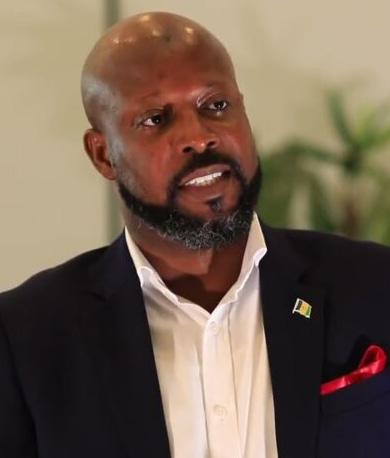
St. Vincent and the Grenadines (SVG) has outpaced all Caribbean destinations in U.S. tourism growth, achieving a staggering 74.8% increase in American visitors during the first quarter of 2025 compared to 2024 – the highest jump in the region. The announcement came from Tourism Minister Carlos James following the Caribbean Tourism Organization’s (CTO) Caribbean Week in New York (June 1-8), where the island’s exceptional performance was highlighted in regional reports. Among 11 Caribbean destinations report-
ing U.S. market growth, SVG dominated, followed by:
Curaçao (23.5%)
Barbados (22%)
Antigua (12.4%)
“These numbers reflect SVG’s strategic transformation into a globally competitive destination,” Minister James stated. “Through innovation, data-driven marketing, and strong partnerships, we’re delivering unforgettable experiences while driving economic growth.”
SVG’s tourism success extends beyond the U.S. market: 12.8% overall Q1 growth across all markets (3rd regionally behind Curaçao at 16.6% and Bermuda at 9.8%);
102,766 stay-over visitors in 2024 – a 27.2% surge from 2023. Another 12.8% increase already in Q1 2025.
“Tourism isn’t just arrivals – it’s jobs, investments, and opportunities across sectors,” James emphasized, noting its role as a key GDP contributor.
With stakeholder collaboration and a focus on sustainable development, SVG is cementing its status as a Caribbean leader in post-pandemic recovery. As Minister James concluded: “We’re just getting started.”



The 2025 Concacaf Gold Cup continued as Guatemala secured a 1-nil victory over Jamaica in Group C on Monday at Dignity Health Sports Park in Carson, California, USA.
Guatemala nearly took the lead in the 17’ when Darwin Lom fought off a sea of defenders to help set up an Óscar Santis volley that was ruled offside.
The duo was rewarded in the 32’ when Santis scored the game’s lone goal off a brilliant backheel assist from Lom.
Jamaica goalkeeper Andre Blake made one of three saves on the night in the 70’ to deny a header from Rubio Rubín.
Guatemala goalkeeper Nicholas Hagen finished the night with two saves and the clean sheet.
The victory marks Guatemala’s first over the
Reggae Boyz in six Gold Cup encounters. The result is also the first victory in the series in all competitions for Los Chapines since 2012. Group C play will continue on Friday when Jamaica meets Guadeloupe in San Jose, California, followed by Guatemala taking on Panama in Austin, Texas.
FACT:
This was Guatemala’s first victory against Jamaica in six Gold Cup matches, having lost all previous encounters. It also marked Guatemala’s second official win over Jamaica since their last triumph (2-1) in the Concacaf qualifiers for the 2014 FIFA World Cup Brazil, with goals from Carlos Figueroa and Carlos Ruiz.


Cricket West Indies (CWI) is pleased to announce the region’s participation in a historic three-match T20 International series against the Asian nation of Nepal, the first-ever bilateral series between the two teams, marking a significant milestone in the ongoing mission to grow and globalize the game of cricket.
Taking place in Sharjah, United Arab Emirates on September 27, 28, and 30, 2025, the series is being hosted by the Cricket Association of Nepal (CAN) and represents a landmark opportunity for Nepal as it gears up for the ICC Men’s T20 World Cup Asia Qualifier later this year.
For CWI, the engagement reflects its strong commitment to supporting the development of cricket in emerging nations and fostering meaningful partnerships with fellow cricketing boards worldwide.
Speaking on the importance of this occasion, CWI CEO Chris Dehring stated: “This series is more than just a set of international matches—it’s a celebration of the game’s expanding global footprint and a testament to what cricket represents: pride, purpose, and the power of unity. As a full-member nation, we see it as part of our responsibility to contribute to the development of cricket beyond our
borders. Supporting Nepal in this key phase of their cricketing journey not only builds the sport at the grassroots and international levels but also reminds us of the deep pride and honor associated with representing our nation and wearing our national colors. We are proud to stand with Nepal at this moment in their history and look forward to exciting and competitive cricket in Sharjah.”
The West Indies team, known for its rich legacy and dynamic style of play, is expected to field a competitive squad that will offer Nepal critical exposure ahead of their World Cup qualifying campaign. The series also provides an opportunity for players and fans alike to experience the spirit of international cricket in a vibrant, neutral venue.
Cricket West Indies extends its sincere thanks to the Cricket Association of Nepal and the Emirates Cricket Board for their collaboration in organizing the series and looks forward to continuing to work together towards advancing the global growth and accessibility of the game of cricket.
Match Schedule (All Matches @Sharjah, UAE):
1st T20I – September 27, 2025
2nd T20I – September 28, 2025
3rd T20I – September 30, 2025
